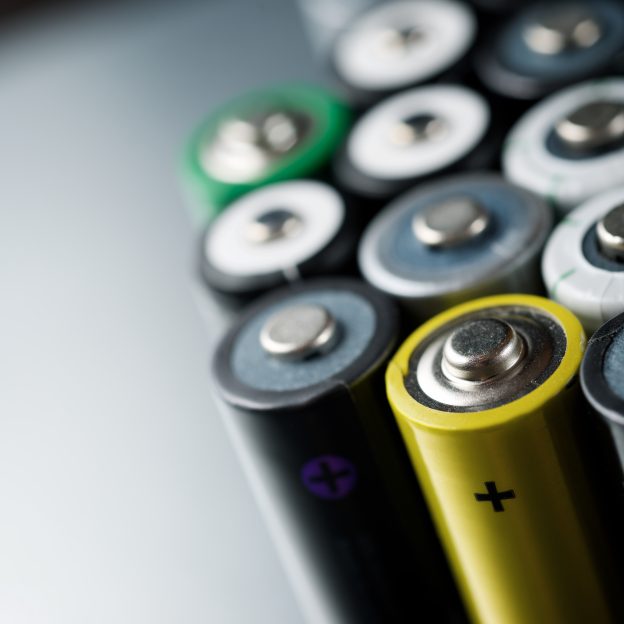Demand is outstripping supply for battery cathode materials such as iron phosphate (FePO4) and lithium iron phosphate (LiFePO4) due to the boom in the NEV industry. In view of this situation, Chinese suppliers for upstream materials in the mobility battery supply chain are also rapidly taking on new production capacity. At the same time, the existing suppliers for chemicals such as titanium dioxide (TiO2) are leveraging their advantages related to the access to phosphate minerals and the processing of phosphorous-based materials to build up production capacity for cathode materials used in LFP batteries.
Tinci Materials to Undertake Second-Phase Expansion for Its Iron Phosphate Production
Tinci Materials, which is a leading supplier for battery electrolytes, announced on April 15 that it will invest around RMB 1.005 billion in the second-phase expansion of its iron phosphate production. The investment and development efforts will be channeled through its local subsidiary in Yichang, which is a prefecture-level city in China’s Hubei Province. The additional production capacity resulting from this expansion project will come to around 300,000 metric tons per year.
Tinci’s product portfolio encompasses battery electrolytes, lithium hexafluorophosphate (LiFP6), and iron phosphate. The company is one of the few Chinese suppliers that are able to manufacture the key ingredients for battery electrolytes, such as lithium hexafluorophosphate, new types of lithium salts, etc.
Tinci has stated that there is currently a certain degree of shortage for iron phosphate because it is an essential part of a cathode material, and the downstream demand has been rising rapidly as battery suppliers have been taking on a lot of new production capacity. Tinci has further stated that as a leading supplier for iron phosphate, it has already established a comprehensive processing and production scheme that provides a sufficient cost advantage as well.
The second-phase expansion is expected to strengthen Tinci’s position in the market for iron phosphate and enable the company to effectively meet the growing demand for the material at home and abroad. This, in turn, will maintain the company’s leadership in the upstream of the supply chain for new energy technologies. Hence, the second-phase expansion is of great significance for the company and aligns with the company’s overall development strategy.
Changyuan Lico to Raise RMB 3.25 Billion for Scaling Up Production of Lithium Iron Phosphate
Changyuan Lico announced on April 16 that it plans to raise RMB 3.25 through the issuing of convertible bonds. The fresh capital will be used to fund the second-phase expansion of its production capacity for cathode materials used in mobility batteries and to augment its cash flow. This fundraising plan is still being reviewed by the relevant regulatory authority. The additional production capacity for lithium iron phosphate resulting from this expansion will come to around 60,000 metric tons per year.
As a subsidiary of China Minmetals Corporation, Changyuan Lico supplies various types of precursors and cathode materials for lithium batteries. Examples include ternary cathode materials and lithium cobaltate (LiCoO2). The company also offers cathode materials for nickel-metal hydride (NiMH) batteries. All in all, the company has inserted itself deep into the upstream of the battery supply chain.
Changyuan Lico has stated that LiFePO4-based cathode materials and ternary cathode materials are currently mainstream, and there is a high degree of overlap among buyers in the downstream. Hence, it will be able to widen the application scope of its products portfolio by ramping up production. Changyuan Lico has further stated that LiFePO4-based cathode materials will become its main offerings in the future.
Annada Titanium Industry to Build Production Capacity of 50,000 Metric Tons per Year for High-Performance Iron Phosphate
Annada Titanium Industry announced on April 15 that one of its subsidiaries will form a joint venture with several strategic investors that include a subsidiary of Gotion High-Tech. The joint venture, which is expected to entail an investment of around RMB 316 million, will set up a production capacity of 50,000 metric tons per year for high-performance iron phosphate.
The joint venture, whose English name has yet to revealed, will have a registered capital of around RMB 150 million. Annada’s subsidiary will account for RMB 97.5 million of the registered capital and acquire a stake of 65%, whereas Gotion High-Tech’s subsidiary will account for the remaining RMB 52.5 million and acquire the remaining stake of 35%. The joint venture will be involved in the development, manufacturing, and sales of various chemical products that include iron phosphate.
According to publicly available information, Annada’s main offerings are anatase-type titanium dioxide and rutile-type titanium dioxide. The company’s production capacity figures for the former and latter now come to about 30,000 metric tons per year and 80,000 metric tons per year respectively. It also has a production capacity of 10,000 metric tons per year for TiO2-based materials designed for specialty applications.
As for the subsidiary that will be forming the joint venture with strategic investors. It concentrates on the development, manufacturing, and sales of battery-grade iron phosphate. Currently, its production capacity for anhydrous iron phosphate has reached 15,000 metric tons per year, and its production capacity for precursors used in the manufacturing of iron phosphate has reached 5,000 metric tons per year. The subsidiary has also been cooperating with a number of well-known universities in R&D.
Annada has stated that the joint venture and the setup of the new production capacity for high-performance iron phosphate are aligned with the national industrial policies and the development direction of the domestic new energy sectors. The joint venture will play an important role in improving many aspects of Annada’s operation, such as capturing market share, growing the economies of scale, raising profitability, and strengthening competitiveness. Furthermore, Annada is adopting the circular model for development and reducing operational risks. The new joint venture will support its efforts in these areas as well. All in all, the formation of the joint venture fits into the company’s strategy.
GPRO Titanium Industry to Invest RMB 10 Billion in Production of Iron Phosphate and Lithium Iron Phosphate
Besides Annada, GPRO Titanium Industry as the leading supplier for titanium dioxide in China has also entered into the market for new energy solutions. GPRO will be committing as much as RMB 10 billion into the manufacturing of battery materials.
On April 10, GPRO announced that it will construct a standalone production plant for the manufacturing of battery-grade iron phosphate, lithium iron phosphate, and other battery materials. The plant will be located in an advanced industrial park for the manufacturing of coal-based chemicals and synthetic materials in China’s Anhui Province. Moreover, GPRO will build and operate the plant through a newly established local subsidiary with a registered capital of RMB 400 million. In terms of production capacity, the plant will attain 200,000 metric tons per year for both battery-grade iron phosphate and lithium iron phosphate.
Provisionally named “Anhui New Energy Technology Development Co. Ltd.”, the new subsidiary will possess a fairly substantial portfolio that encompasses chemical products, synthetic materials for electronics, synthetic materials for new energy solutions, etc. Chemical products include iron phosphate, lithium iron phosphate, sulfuric acid (H2SO4), phosphoric acid (H3PO4), ammonium dihydrogen phosphate (ADP), etc. Synthetic materials include ammonium sulfate and gypsum. In addition to these diverse products, the subsidiary will also engage in R&D and offer technical consultation services.
As a major domestic supplier for titanium dioxide, GPRO has two subsidiaries or main production sites that are respectively located in Nanjing and Xuzhou. The Nanjing site manufactures rutile-type titanium dioxide, whereas the Xuzhou site manufactures both anatase-type and rutile-type products.
GPRO has stated that it is building, extending, and strengthening the supply chain for titanium dioxide. At the same time, the company will utilize chemical products and processing byproducts (e.g., ferrous sulfate or FeSO4) to develop devices such as LFP batteries for energy storage systems and NEVs. Like the aforementioned suppliers, GPRO is banking on the growing demand for LFP batteries.
(This article is a translation of a Chinese article written by Wendy from TrendForce. It contains information that is either sourced from other news outlets or accessible in the public domain.)







